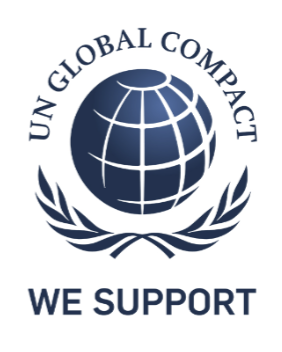
A sustainable strategy
Ocab’s sustainability work is based on established frameworks and standards that guide us in our day-to-day decisions. In this way, we maintain high, transparent standards in our work.
Our business model is based on saving value for people and for the environment.
We are using the UN Sustainable Development Goals for guidance and setting science-based climate targets in line with the Paris Agreement to avoid the worst effects of climate change.
We are convinced that a sustainability strategy should go hand in hand with the business strategy, which is why we use global standards and frameworks to help us navigate and set priorities.
In addition to limiting global warming, we are creating awareness of the use of resources for current and future generations.
At the same time, the principles help us maintain high standards and future-proof our own and our customers’ operations.
Read more about our strategy

Frameworks
Sustainable Development Goals
The UN Sustainable Development Goals (SDGs) are part of Agenda 2030, the most ambitious sustainable development agenda ever adopted by the countries of the world.
Science Based Targets
The Science Based Targets initiative (SBTi) helps us to ensure that we are establishing targets and action plans that are in line with the Paris Agreement, helping to keep global warming below (or well below) 2°C and aiming to limit it to 1.5°C.
UN Global Compact
The UN Global Compact (UNGC) is the world’s largest sustainability initiative for companies and organisations committed to active social responsibility on sustainability issues.
By means of our involvement, we are responsible for promoting the 17 UN Sustainable Development Goals (SDGs) and integrating the ten principles associated with international conventions on human rights, labour, the environment and anti-corruption in our business strategy and operations.
ISO
ISO 9001 and 14001 are international standards for quality and environmental management. They aim to guide, track and improve an organisation’s work in line with its own and customers’ requirements.
GRI
The Global Reporting Initiative (GRI) is an international independent organisation that helps organisations understand and communicate their impact on issues such as climate change, human rights and corruption.
The GRI Standards constitute an effective tool for preparing a high-quality sustainability report and improving relations with key stakeholders. A relevant and reliable sustainability report helps improve a company’s transparency and strengthens trust.
GHG Protocol
The Greenhouse Gas Protocol (GHG Protocol) is the most internationally recognised standard for measuring and managing greenhouse gas emissions. Scope 1 refers to direct emissions, scope 2 to indirect emissions in the form of energy, and scope 3 to indirect emissions in addition to purchased energy.
Focus areas








